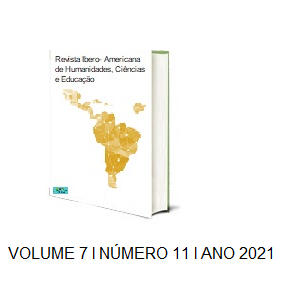A IMPORTÂNCIA DO LÚDICO NA APRENDIZAGEM DA CRIANÇA
DOI:
https://doi.org/10.51891/rease.v7i11.3096Keywords:
Recreation. Learning. Child. Play. Educate.Abstract
This paper proposes a vision of vital importance on the issue of playfulness inserted in the educational process, it is essential that teacher education is steeped in turning their syllabus in activities that will elucidate and challenge children to learn for pleasure. Aims to understand the meaning of the play and its importance in the development of language in children. Thus, designing games as a pleasurable and enriching act of traditions and knowledge, it becomes something conducive to profound reflections of current pedagogical practices. We know that the games are already part of a child's life from birth, being a powerful tool capable of instigating and mainly promote learning, taking the child to value and express their cultures and interacting with new cultures and experiences entering the world of knowledge, full of prospects and possibilities of developing their skills and capabilities where the real world and the imaginary are confronted constantly building roads through playful activities that will guide and help the child develop their motor, cognitive, and social potential their knowledge.
Downloads
Downloads
Published
How to Cite
Issue
Section
Categories
License
Atribuição CC BY

